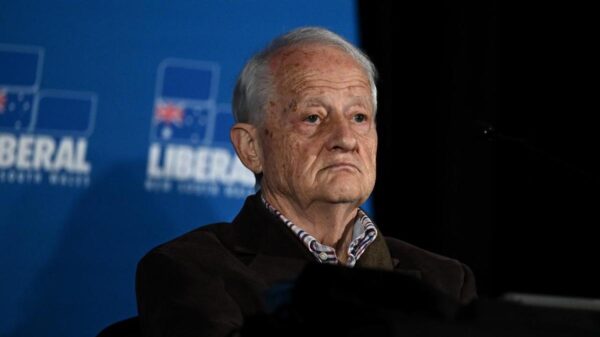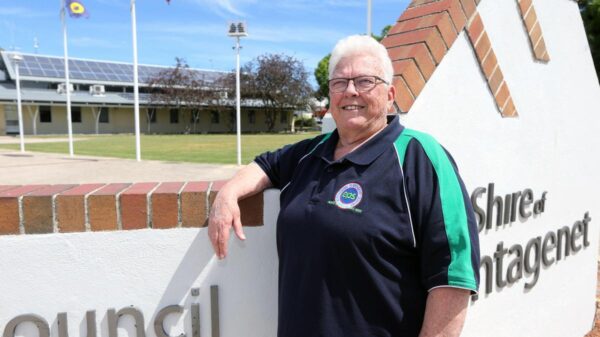The prestigious Booker Prize has introduced a new category aimed at children’s literature, offering a £50,000 prize. The Children’s Booker Prize will include three child judges alongside three adult judges to select the winning title. This initiative comes as concerns grow over a significant decline in reading enjoyment among children in the UK and Australia, described as a “literacy crisis.”
A recent survey by the National Literacy Trust indicates that British children are reading less frequently and with diminished enjoyment. In Australia, data from the Australian Bureau of Statistics shows that while overall literacy rates remain stable, the percentage of children aged 6 to 17 reading for pleasure has dropped from 37% in 2010 to just 28%. This decline in reading enjoyment appears to worsen with age.
The new award aims to counteract this trend. The Booker Prize Foundation plans to distribute 30,000 copies of the shortlisted titles to enhance the accessibility of quality literature for children. Gaby Wood, the foundation’s chief executive, stated, “the Children’s Booker Prize is not just a prize – it’s part of a movement: a cause that children, parents, carers, teachers, and everyone in the world of storytelling can get behind.”
In a parallel effort, the National Literacy Trust has designated 2026 as the National Year of Reading, aiming to improve literacy habits across the UK. Yet, questions remain about whether these initiatives will effectively increase reading levels.
In the Australian context, numerous prestigious awards exist for children’s literature, including the Children’s Book Council of Australia Book of the Year and the Prime Minister’s Literary Award. Despite these opportunities, many Australian children continue to struggle with reading enjoyment and access to literature. Recent NAPLAN results reveal that while two-thirds of middle-school students perform well in reading and writing, one in ten requires additional support. Compounding the issue, an increasing number of students are opting out of these tests, potentially skewing the results.
Those most impacted often come from disadvantaged backgrounds, with factors such as gender, location, language, and parental education playing significant roles. Current statistics provide an incomplete yet concerning picture of literacy in Australia.
The reports have prompted action from both government and the publishing industry, recognizing that fostering a love for reading is crucial for improving literacy rates. The New South Wales government has committed AU$3.2 million towards a comprehensive reading and writing strategy. Additionally, Penguin Random House Australia and New Zealand have allocated AU$200,000 in grants for bookstores to encourage young readers to engage with literature.
One pressing concern is the perceived conflict between reading for educational purposes and reading for enjoyment. A recent global report highlights that excessive focus on skill development can diminish the joy of reading. The competition for children’s attention from screens further exacerbates this issue. Research suggests that improving literacy rates hinges on promoting reading for pleasure rather than merely quantifiable outcomes.
A report from the National Institute of Education in Singapore outlines six principles essential for literacy success that prioritize enjoyment over curriculum-based approaches: agency, access to literature, time in daily routines, reflection and connection, social interaction, and fostering a positive reading identity. These principles suggest that encouraging children to read regularly can lead to greater academic proficiency and improved well-being.
Literary prizes play a vital role in identifying and promoting quality literature. They serve as a seal of approval, enhancing the visibility and sales of award-winning books. However, engaging young readers will require a collaborative effort from parents, educators, and the broader community.
The social aspect of reading is particularly significant. Research indicates that discussing stories with peers enhances reading enjoyment. New Zealand scholars have found that agency and choice in reading are critical motivators. Furthermore, habitual readers not only develop stronger literacy skills but also cultivate curiosity and empathy.
A recent study has shown that children who read for pleasure experience structural changes in their brains, leading to improved cognitive abilities and mental health outcomes. The researchers emphasized the critical link between early reading for enjoyment and later cognitive development.
While literary prizes like the Children’s Booker Prize are valuable tools for promoting reading, they are insufficient alone. A concerted community effort is essential to foster a culture of reading enjoyment among children, ultimately boosting literacy rates in the process.


































































